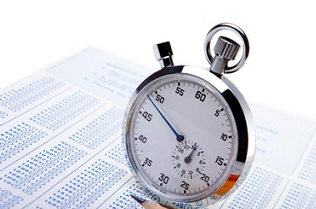In this second installment of Brain Rules, I’ll introduce 6 additional brain rules to leverage in understanding the ways we think, learn and retain new information. Hopefully, you can incorporate some of these into your routine to help you study more efficiently and effectively.
Improving Academic PerfORMANCE
Learn how to improve yourself through targeted learning and improved study skills.
Posts about malleable brain:
Early Bird Gets the Worm: Taking Advantage of Brain Plasticity
 Have you ever met a child that knows a surprising amount of foreign languages. Has it ever amazed you how quickly a child can pick up new skills and learn new techniques? Turns out new evidence shows that children learn more and earlier than previously thought (Kuhl, 2011). However, at the same time, the rates of inattentive children in classrooms as well as the prevalence of learning disabilities have been on the rise. In my many years of tutoring, I’ve been able to witness firsthand how young children have the capacity to quickly pick up new information. This article will focus on the importance of introducing students to the concepts of learning and education earlier on in their development to leverage the phenomenon of neuroplasticity.
Have you ever met a child that knows a surprising amount of foreign languages. Has it ever amazed you how quickly a child can pick up new skills and learn new techniques? Turns out new evidence shows that children learn more and earlier than previously thought (Kuhl, 2011). However, at the same time, the rates of inattentive children in classrooms as well as the prevalence of learning disabilities have been on the rise. In my many years of tutoring, I’ve been able to witness firsthand how young children have the capacity to quickly pick up new information. This article will focus on the importance of introducing students to the concepts of learning and education earlier on in their development to leverage the phenomenon of neuroplasticity.The Dynamic Brain: A Fresh Outlook on Learning Potential
 The old adage “you can’t teach an old dog new tricks” has some interesting implications when applied to humans through the lens of something called neuroplasticity, which is essentially how malleable, dynamic and flexible the neurons (brain cells) in our brain are. This is directly related to the phenomenon of learning. Although, one must wonder when it comes to canines if sometimes the older dog truly can’t learn new tricks, or is simply just too old to care or try!
The old adage “you can’t teach an old dog new tricks” has some interesting implications when applied to humans through the lens of something called neuroplasticity, which is essentially how malleable, dynamic and flexible the neurons (brain cells) in our brain are. This is directly related to the phenomenon of learning. Although, one must wonder when it comes to canines if sometimes the older dog truly can’t learn new tricks, or is simply just too old to care or try!
For me, this raises a few questions:
- What is it about getting older that makes it harder for us to learn new things?
- Or is this just a thought put into our heads and are we perhaps not giving our magnificent brains enough credit?
- And what does this say about the period of time while we are young and supposedly able to “learn new tricks”?
- Why is it easier to learn when we are younger?
